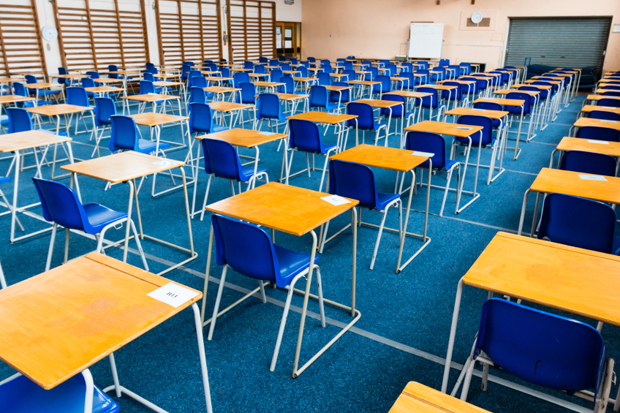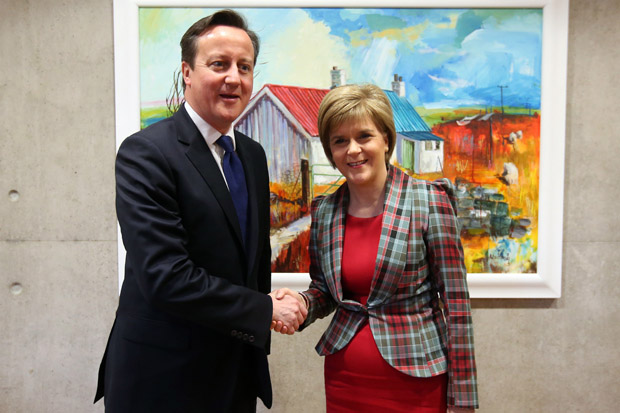The Education Policy Institute (EPI) has just published a report looking at the attainment gap between disadvantaged and non-disadvantaged 16-year-olds in England — and the news is not good. While the gap has narrowed by three months since 2007, it is still 19.3 months. That is to say, it is as if disadvantaged pupils have received 19.3 months less schooling than their peers by the time they take their GCSEs. For the persistently disadvantaged, i.e. those who have been eligible for free school meals for at least 80 per cent of their school lives, the gap is 24.3 months.
Most people’s instinctive reaction to this news will be frustration and anger. After all, how can we hope to increase social mobility in this country if children from disadvantaged backgrounds are still under-performing to this extent? As Jo Hutchinson, one of the authors of this report, says: ‘At the current rate of progress it would take a full 50 years to reach an equitable school system.’
But are schools to blame? We take it for granted that an ‘equitable’ system would be one in which the attainment gap was zero, but that overlooks the extent to which educational attainment is linked to children’s genes. The consensus among behavioural geneticists, after conducting numerous twin studies, is that GCSE results are around 60 per cent heritable — i.e. 60 per cent of the differences in children’s GCSE grades are due to genetic differences, and only 40 per cent to environmental differences. That suggests that more than half of the gap between disadvantaged and non-disadvantaged pupils is due to genetic differences and not anything the schools are doing (or not doing).
When behavioural geneticists have tried to isolate the impact that schools have on differences in children’s attainment they have found it to be surprisingly slight. For instance, a forthcoming study by a team of researchers led by Robert Plomin, professor of behavioural genetics at King’s College London, finds that nearly all of the variance in children’s GCSE results can be explained by prior educational attainment, parental socio-economic status and general cognitive ability, with only 0.5 per cent of the variance due to whether they attended an independent school, a grammar or a comprehensive once these other factors are controlled for. The implication, along with many others, is that there is not much schools can do to close the attainment gap.
Which is not to say they should stop trying. The EPI report found some progress has been made in the past ten years, and across the OECD there are school systems that are better at closing the gap than others. According to a 2011 report published by the Programme for International Student Assessment, disadvantaged pupils in Canada, Finland, Japan, Korea, Hong Kong, Estonia and parts of China do particularly well.
But if only a limited amount can be achieved by what schools do in the classroom, what else can be done? One answer is to focus on parents. A case in point is what has been accomplished by Hamid Patel, the chief executive of the Tauheedul Education Trust. Two of the Trust’s secondary schools topped the national league table last year when it comes to the progress children make between the ages of 11 and 16 — particularly remarkable given that both are in Blackburn, one of the most deprived cities in England.
Hamid and his staff achieved this by insisting that parents support every aspect of their children’s education — and they go to ridiculous lengths to make sure this happens. To give just one example, most schools hold one or two induction days for new parents each year, but the Tauheedul Education Trust goes on holding them until every single parent has attended.
I have done my own small part to close the gap by co-authoring a book, just out in paperback, called What Every Parent Needs to Know: How to Help Your Child Get the Most Out of Primary School. In addition to providing a detailed breakdown of what children learn in the classroom, it contains hundreds of tips about what parents can do at home to help. These are all things most middle-class parents do as a matter of course, but which don’t happen in the majority of disadvantaged homes. My hope is by sharing this cultural capital, I can help to bridge that gulf. It probably won’t achieve much, but we need to do whatever we can.
Got something to add? Join the discussion and comment below.
Get 10 issues for just $10
Subscribe to The Spectator Australia today for the next 10 magazine issues, plus full online access, for just $10.
You might disagree with half of it, but you’ll enjoy reading all of it. Try your first month for free, then just $2 a week for the remainder of your first year.















Comments
Don't miss out
Join the conversation with other Spectator Australia readers. Subscribe to leave a comment.
SUBSCRIBEAlready a subscriber? Log in